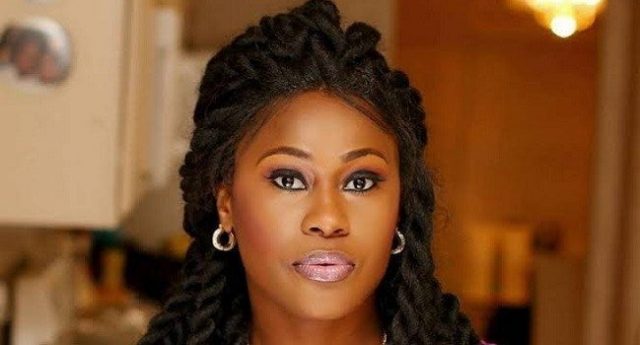Nollywood actress, Uche Jombo, has come out to say that she is happy to have fulfilled her long-held dream of acting alongside veteran moviestar, Joke Silva. She recently had her say via her social media page, and fans have been reacting.
During a convo with fellow actor, Daniel Etim-Effiong, in a viral video that was shared way back in 2023, Jombo immediately revealed her long-held dream as soon as Daniel mentioned the physical resemblance between both actresses.

According to her, even if she has already enjoyed the privilege of playing a younger version of Joke Silva in a movie, she still wants to act as her daughter on screen.
“Omo you look like Aunty J,” Daniel had said in the clip.
“Yes, I do, even without make-up. I’ve played like a younger her in a film. My dream role is actually a mother-daughter with her, I’ve never had that role. When I first started acting, they used to ask me if I was related to her before I didn’t know her, I now had to start looking for who she was,” Uche replied.
Fast forward to 2025, the moviestar shared a video on Instagram from the movie set where she and Joke Silva are finally making her dream come true.
Uche added that immediately she got the script, she quickly reached out to Joke Silva to beg her to play her mother, and filming is now almost complete for the project.
WOW.
Nollywood is a sobriquet that originally referred to the Nigerian film industry. The origin of the term dates back to the early 2000s, traced to an article in The New York Times. Due to the history of evolving meanings and contexts, there is no clear or agreed-upon definition for the term, which has made it a subject to several controversies.
The origin of the term “Nollywood” remains unclear; Jonathan Haynes traced the earliest usage of the word to a 2002 article by Matt Steinglass in the New York Times, where it was used to describe Nigerian cinema.
Charles Igwe noted that Norimitsu Onishi also used the name in a September 2002 article he wrote for the New York Times. The term continues to be used in the media to refer to the Nigerian film industry, with its definition later assumed to be a portmanteau of the words “Nigeria” and “Hollywood”, the American major film hub.
Film-making in Nigeria is divided largely along regional, and marginally ethnic and religious lines. Thus, there are distinct film industries – each seeking to portray the concern of the particular section and ethnicity it represents. However, there is the English-language film industry which is a melting pot for filmmaking and filmmakers from most of the regional industries.
Support InfoStride News' Credible Journalism: Only credible journalism can guarantee a fair, accountable and transparent society, including democracy and government. It involves a lot of efforts and money. We need your support. Click here to Donate
